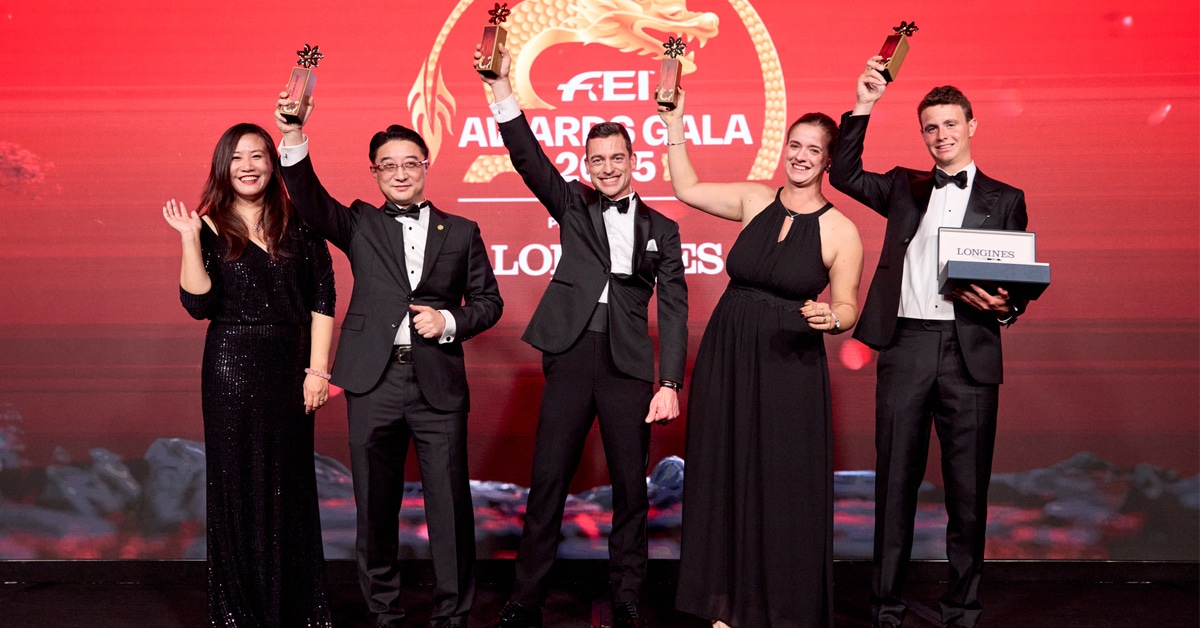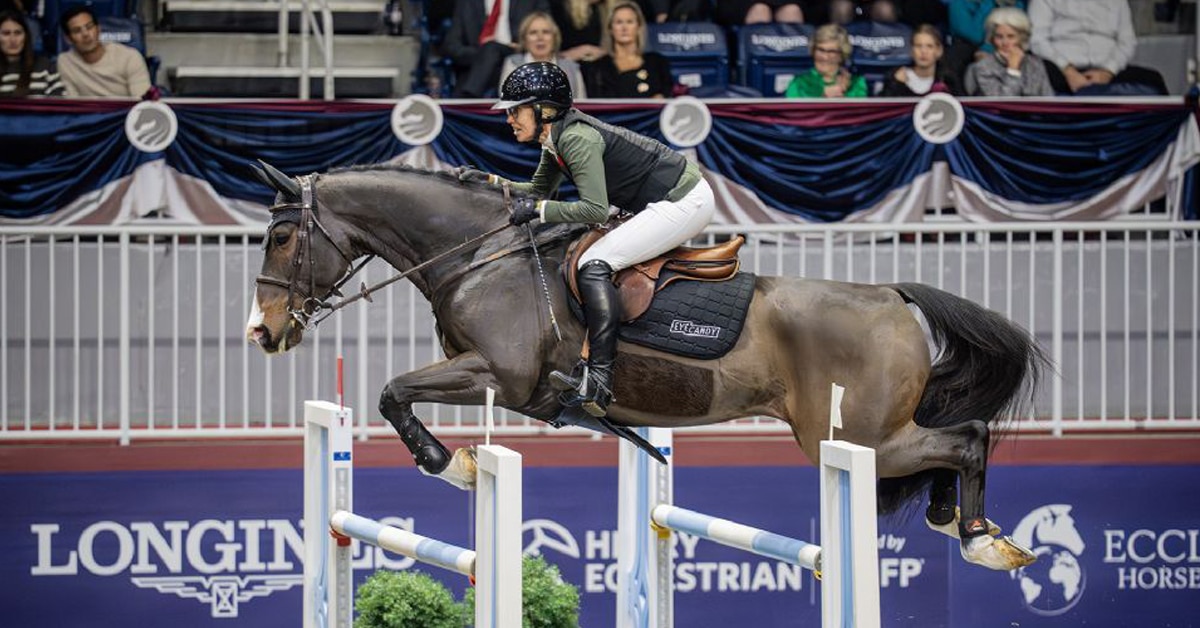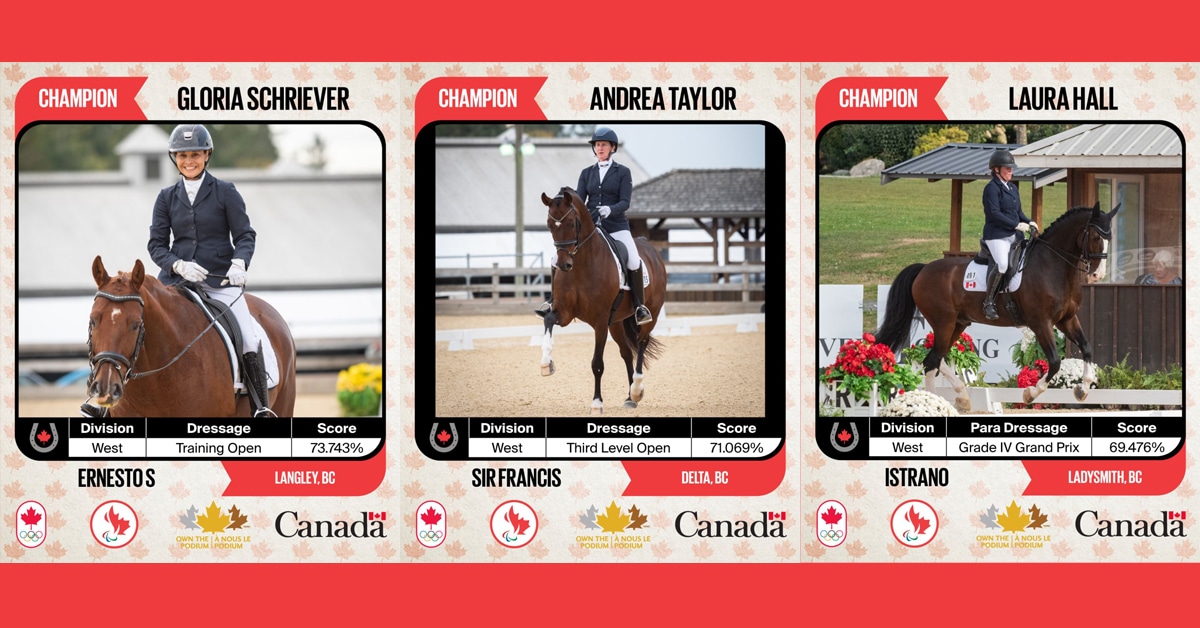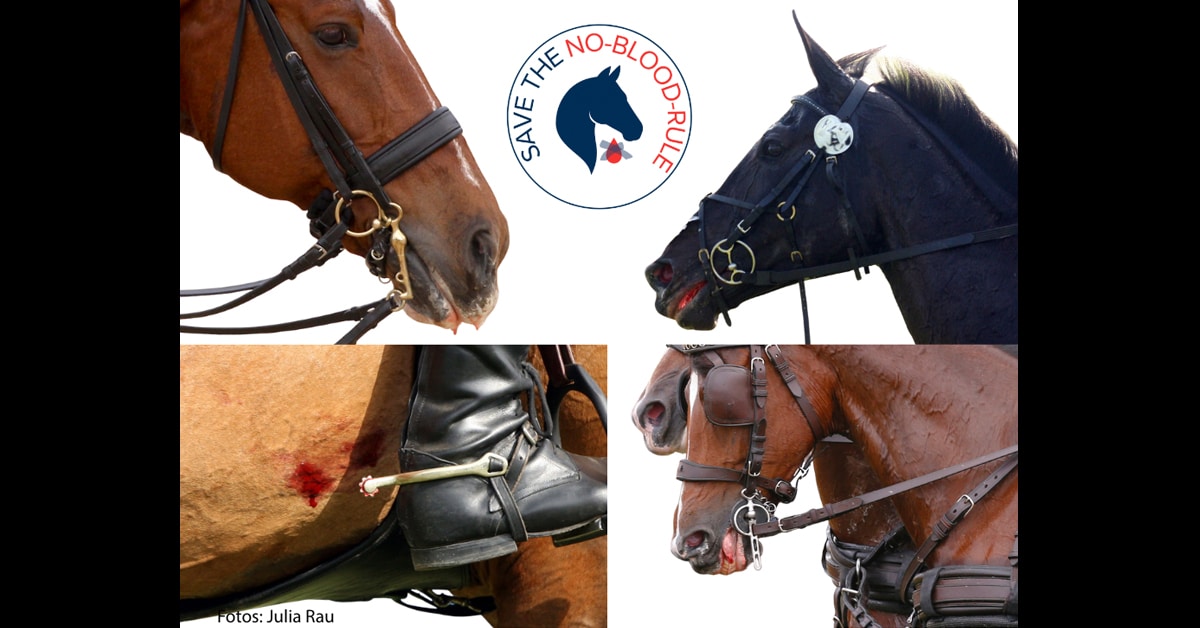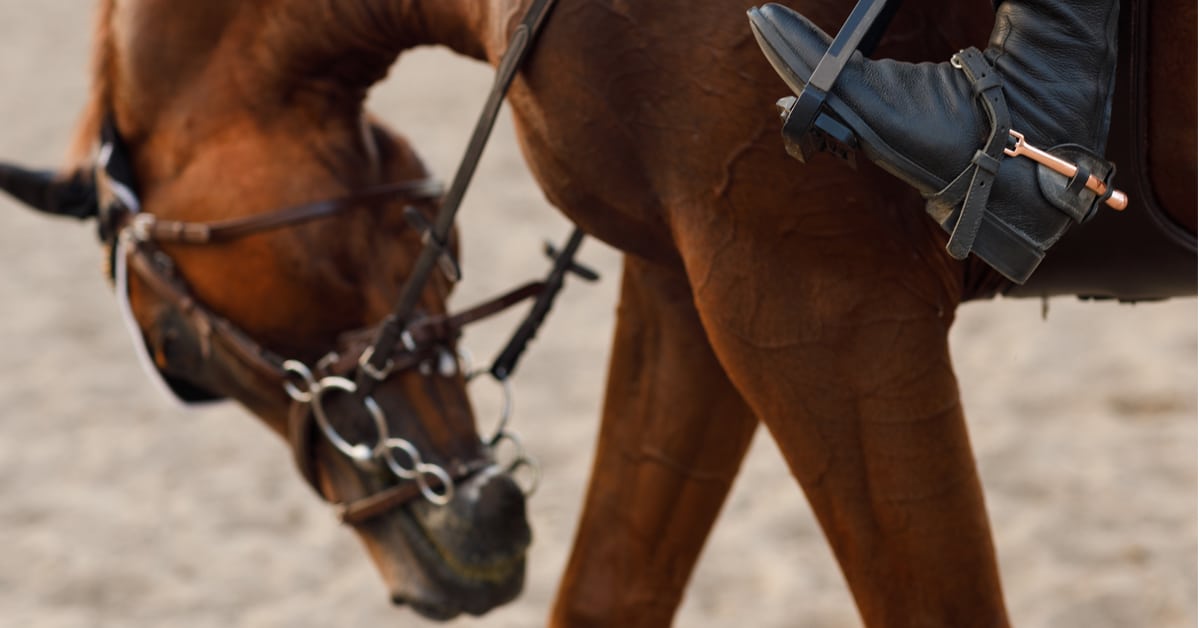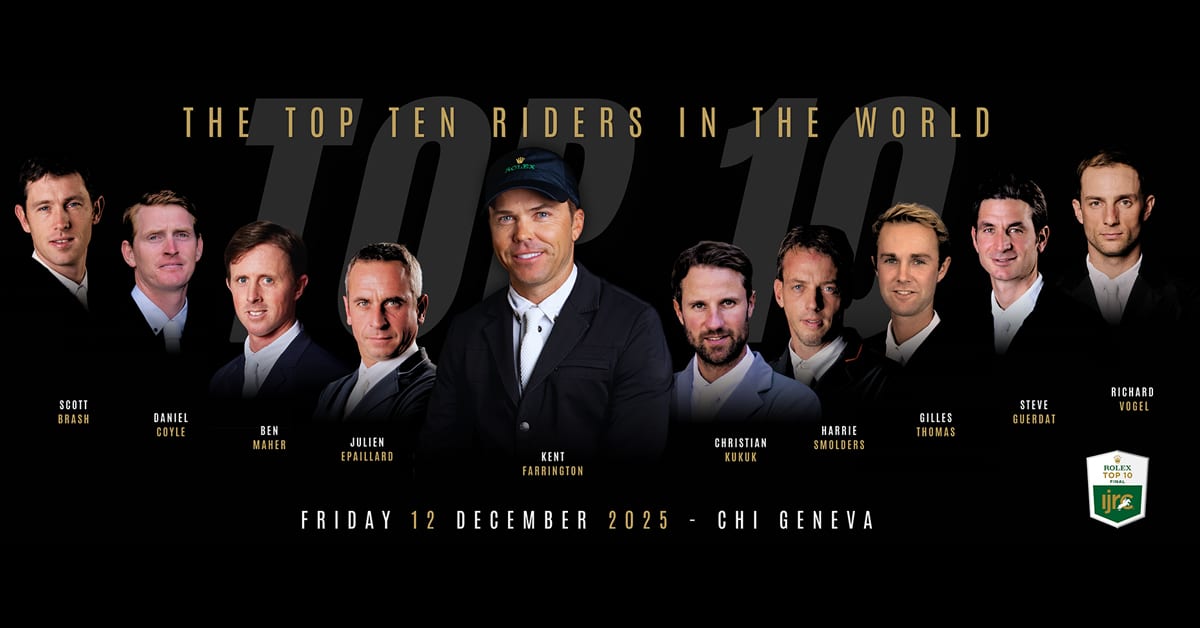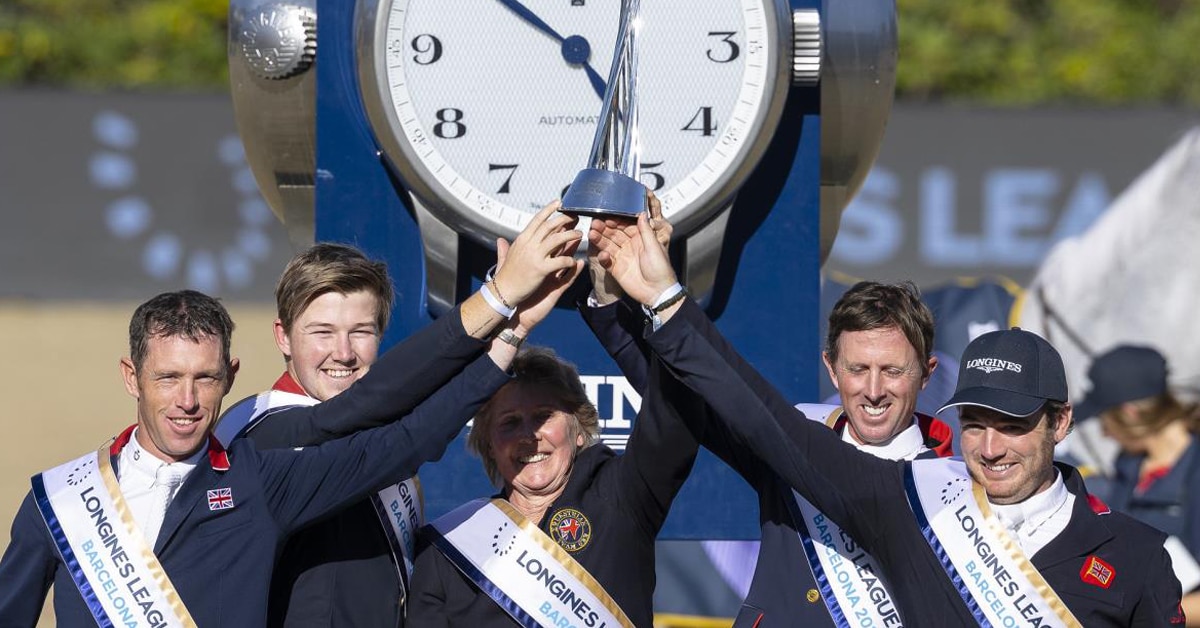After six rounds of show jumping and a six-way jump-off for the gold, Canada’s Eric Lamaze and Fine Lady 5 won the bronze medal, Peder Fredricson and All In won the silver for Sweden, and Nick Skelton with Big Star earned the gold medal for Great Britain.
Lamaze originally purchased Fine Lady as a 1.50m speed horse, but the feisty mare that knocked down just a single rail during the Games has gone well beyond. Even Lamaze remains surprised at what she continues to deliver.
“If you’d asked me once we bought her if we would be at the Rio Olympics with her, I would say you are crazy. If you asked me at the beginning of last year if I was going to Rio with her, I would say no way. At that Masters last year, I’d say no, not at all,” he said after the team final. “In Geneva, last year, in the Geneva Grand Slam she was third in that grand prix – a million-dollar grand prix – and I used her only because Power Play wasn’t well. Everything I keep asking her, she does.”
Her success, however, is no accident. Lamaze’s second individual Olympic medal is just a much a tribute to his training as to his riding. He carefully managed her show schedule to give her the confidence she needed to win at this level. “Spruce Meadows is the best venue for preparing for Championships,” he said of his Olympic training regime which involved the summer tournaments in Calgary and then the CHIO in Aachen before travelling to Rio.
“She probably has a more winning track record than any horse here, just not at this height,” was teammate Tiffany Foster’s comment on Eric’s planning. “She wins and wins and wins, but Eric did that on purpose because it has a lot to do with the horse’s confidence. He didn’t overface her before – not that she couldn’t do this – but he let her come in here feeling like she was on top of the world with the thought that two holes bigger and two inches wider, she was going to continue on that role.”
The individual gold medalist at the 2008 Olympic Games in Hong Kong, Lamaze is now one of just six riders to have two individual medals in show jumping, and is already making future plans.
“It all depends on what horse you have at that particular time in your career. At our stage as you get older, if you feel you have the right horse for the job, it makes you keep going,” he said of his chances for competing at the 2020 Olympics in Tokyo. He discussed the possibility with Ian Millar who was here supporting his daughter, Amy. “He told me that he’s going to Tokyo. I told him that if he’s going to Tokyo, I’ll go with him!”
The decorated athlete is still most appreciative of what it means to win an Olympic medal. “In my experience, people quickly forget what you’ve won when it comes down to a grand prix, but an Olympic medal stays with you forever. People refer to me not as the guy that won Aachen or Spruce Meadows, but they refer to my gold medal. The medal stays with you forever. The grand prix, once it’s over, people forget about it.”
Canadian team mates Yann Candele and Tiffany Foster also made it into the individual final. Yann and First Choice had 12 faults in the first round and did not proceed. “My horse is a bit tired today. Already the practice was a little bit harder to warm-up,” he said of getting his horse ready for his fourth day of competition. The pair were also the first to go in the jump-off for the team bronze medal and so had expended more effort than many others.
Foster and Tripple X III had the last jump in the first round and then 16 jumping and one time fault in the second round. “He just felt pretty tired. He really jumps from his heart, and I felt like he was just a little cooked,” she said of the 16-year-old stallion. “He can jump mountains, but he has to have his heart into it.”
This is Foster’s second Olympics. She was a part of the 2010 Olympics in London, but was disqualified after the first round when the ground jury found her mount, Victor, to have an area of hypersensitivity. She was delighted with her improvement, “I’ve never ridden in the individual final in any Championship, so I got far and I’m thrilled with my horse. He gave me everything he had this whole week.”
It was Nick Skelton’s seventh Olympic Games and, at 58, he became the oldest Olympic champion in an equestrian event. He considers this achievement the crown in his decorated career. “It’s capped my career. I’ve been in the sport a long, long time and to win this here, now …. I’m so happy. It’s amazing.”
Big Star was off with an injury for a few years and Skelton and his team have been nursing him back to health. “He has been a little bit rusty for a few days because for the last three years he hasn’t been to competitions as big as what he did two days ago. The last competition he won was the Grand Prix in Aachen in 2013 and since then he’s been injured, really. It took two years to get him back on track again. It’s taken a lot of work and a lot of people’s time, but I always knew in the back of my mind that if we could get him right again that he could do this. He is an absolutely amazing horse. You can trust him. He wants to do it. He has all the attributes and for me he’s the best horse I’ve ever had. I’m so pleased for him today,” he praised the 13-year-old stallion. “This is for him,” he concluded, pointing to the medal.
Silver medalist Peder Fredricson was also on the silver medal-winning Swedish team at the 2004 Olympics in Athens. His 10-year-old gelding has had a number of fantastic finishes this year including wins at the CSIO 5* in Falsterbo and St. Gallen with a number of top placings at several other shows. “I’m sitting on a very good horse for these Games,” he said after about what he thought of his prospects ahead of time. “I wasn’t expecting it, but I was hoping for it.”
More News
